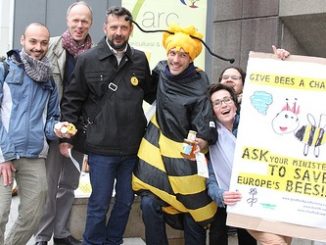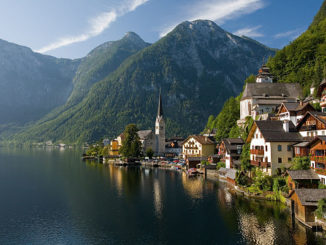
Last week the new crop of wannabe Commissioners faced the first round of questioning from the European Parliament. We read through their written answers so that you don’t have to. Meanwhile, the Agriculture and Fisheries Council signs off (sort of) on a “farmer-focused” CAP post-2027. Plus we bring you the latest on the case building against “poison PR”. Natasha Foote reports.
Commissioner-hopefuls give first round of answers to MEPs
Proving that Commissioner-hopeful Christophe Hansen at least already has the gift of the gab, his answers feature some beautifully contorted yet empty phrases (see, for instance, “I will ensure that this objective translates into a holistic approach that results in clear guiding principles to be implemented as well as throughout the supply chain” – perhaps ChatGPT should’ve had a go).
Regardless, there are a few core themes which hint the direction for the next 5-year political cycle.
The first is generational renewal and support for young farmers, which Hansen says is an issue “close to his heart”. “Ensuring that farming will be a viable and attractive activity decades from now, will be the central tenet of my approach to agricultural policy,” he writes, giving little in the way of tangible detail except a Youth Policy Dialogue in the first 100 days of the new mandate.
One thing that he has come under fire for is being more ‘farm’ than ‘fork’, despite the shiny new addition of ‘food’ onto his title. As Euronews pointed out, this farmer-centric approach has already drawn some criticism from other players in the food chain.
In the 12-page long response to MEPs, the food industry merits a single mention —and only then underscores its obligation to support farmers’ incomes. For farmers to get decent revenue from the market, they need to be able to “negotiate fair prices,” he writes, pointing out that, at the moment, many farmers “are not in a position to do this because of their weaker negotiating power and lack of market transparency” This “lopsided” situation must be addressed, he says, stressing the need to strengthen farmers’ bargaining power and minimise the risk of them being systematically forced to sell below production costs.
Indeed, farmers’ income is a core focus of Hansen’s answers, underscoring the ambitions of his political family, the centre-right EPP, to position itself as the ‘friends of farmers’. Going forward, the EU must draw on “all sources of income,” including income from the market, public income support, and new, alternative income sources, such as carbon farming, he writes.
On the CAP, he suggests more of the same – a focus on national strategic plans, plus a “simpler and more targeted” policy which delivers socio-economic support to “those farmers who need it most,” notably small-scale farmers. But “simplification and efficient implementation” are the priority for Hansen, committing to further lightening the administrative load on farmers’ shoulders.
But clearly his mind is also beyond the CAP, stressing the need to help finance and de-risk the transition, with which he sets out he will work alongside the European Investment Bank to devise ways to “maximise investment sources” and make better use of funding instruments.
Of course, Hansen is not the only Commissioner-hopeful that agrifood stakeholders should be keeping an eye on.
Italy’s European Commission Executive Vice President-Designate Raffaele Fitto, who is on the far-right, takes the opposite tack to Hansen, mentioning farmers only twice in his 15-page reply. However, there is a stronger focus on strengthening the resilience of rural areas in his responses, including a mention to how the new EU budget provides a “unique opportunity” to ensure that “no region is left behind” (that’s not exactly our reading of the new direction that the EU budget may take – read our analysis to learn more).
Meanwhile, Commissioner for Health and Animal Welfare, Hungary’s Olivér Várhelyi, was coy in tackling controversial issues such as front-of-pack labels in his written answers to MEPs, writing that Europe needs to “reflect on how to change the narrative” on risk factors for these chronic diseases, including alcohol and the economic determinants of health.
He’s also meek on animal welfare, promising only to “modernise the rules on animal welfare standards building on our existing legislation”. As a reminder, we’re still waiting on 3 out 4 of the promised legislative overhauls on animal welfare, which were promised but never presented during the last mandate.
Unlike Hansen, who has been very good at schmoozing with MEPs in Strasbourg this week and is largely seen as a shoo-in for the job, Várhelyi is not likely to have an easy ride in his Parliament hearings.
The hearings start on 4 November with Hansen up first, followed by Várhelyi on 6 November and Fitto on 12 November.
Poison PR
The European Parliament was urged by civil society organisations to investigate potential breaches of the EU’s data protection rules in a joint letter sent last week on the back of recent revelations by the investigative media organisation, Lighthouse Reports.
The recent investigation digs into a US-funded strategy to counter global resistance to pesticides. The campaign was spearheaded by PR firms, who profiled hundreds of scientists, journalists and environmental activists from all over the world, including Europe, who have been critical of pesticides or Genetically Modified Organisms (GMOs), including personal details such as their home addresses and telephone numbers.
According to Lighthouse Reports, lawyers have suggested this goes against data privacy laws in several countries, leading to signatories of the letter questioning “possible breaches of European GDPR rules linked to the filing of EU citizens”. As such, the letter urges MEPs to encourage the Commission to uphold privacy laws to protect journalists, scientific communities and environmental activists.
“We consider this scandal to be a clear-cut example of foreign interference in crucial EU policy,” the letter states, pointing out that the PR campaign was not only co-financed by the US government, but that many of the Green Deal ambitions – particularly in the area of agrifood policies – were watered down or abandoned altogether.
Lambasting such “toxic covert PR campaigns” contributing to a repressive political climate, the signatories of the letter warn that these specific campaigns to undermine the EU Green Deal are “not only violating democratic values and intoxicating the public debate with ‘fact-free politics’ and fake news, but above all, bring great damage to the health of your electorate and the future of their children”.
Besides calling on MEPs to continue the path originally forged by the Green Deal five years ago, NGOs also called for a legally binding transparency register, better rules against conflicts of interest for MEPs and an authority with sufficient resources and competencies to monitor and enforce compliance with the rules, to expose covert or manipulative influence on democratic processes.
Read/download the Letter to MEPs on the Campaign against Farm to Fork
Learn more here.
Council’s CAP conclusions – kind of
The EU’s agriculture ministers met last week in Luxembourg to have another go at finding a consensus on their thoughts on the future shape of the EU’s Common Agricultural Policy. This has been a key – if not the only – contribution of the Hungarian Presidency.
However, Hungary only managed to convince 26 out of the 27 EU to support (or at least “not object”, as they put it) the conclusions on a “farmer-focused” post-2027 CAP.
Here are the highlights:
- Two-pronged approach: Supports maintaining a separate and independent CAP containing two pillars with enhanced coherence
- Business as usual: Backs “strong” first pillar measures, stressing the need for direct payments, coupled income support and sectoral interventions – despite the conclusion of the EU’s strategic dialogue pushing for a phase out or a rethink of direct payments
- Urges more of a food chain focus
- Eco-schemes: Calls for strengthening the role of eco-schemes as the “main green transition tool” of the first pillar, but says these should be “streamlined and simplified” with flexibility to adapt to each country’s specific circumstances
- Continued crisis decision-making: Wants more flexibility to offer member states the option to use instruments of the CAP to react to regional or national crisis situations
- Don’t mention the L-word! States that agriculture has “natural limits” in reducing greenhouse gas emissions, and that solutions should be “underpinned by research and innovation” to help cut greenhouse gas emissions from agriculture
The ministers add an invitation for the Commission to consider these recommendations in their upcoming vision for the future of the sector, due within the first 100 days of this new policy cycle.
BUT – don’t get too excited about these conclusions. First, and most obviously, the Hungarians have not even managed to find a consensus in the Council, with Romania refusing to agree to the conclusions over the issue of external convergence, which weakens the foundations of the conclusions from the beginning.
The other thing is that there’s a glaring gap in the conclusions – they don’t take the next EU budget into account at all. Which, considering the big plans the Commission is potentially drawing up, would make the conclusions more or less irrelevant.
And, as all of us CAP connoisseurs know all too well, things can change fast – who knows what crises we will weather in the next few years and what impact this will have when we’re in the thick of negotiations over the new CAP reform.
More
An Agrifood Stakeholder’s Guide to the EU’s New Power Structure
The EU is Mulling a Seismic Budgetary Shift – What Would This Mean for Agri and Rural Areas?
Re-CAP: Breaking down the breakdown of the EU’s green farming measures
CAP not Matching Europe’s Green Ambitions, say Auditors (again)
Brussels News Roundup – Ombudsman Launches Inquiry into CAP Fast-Track
Strategic Dialogue on Agriculture – what’s in it, what’s next?





